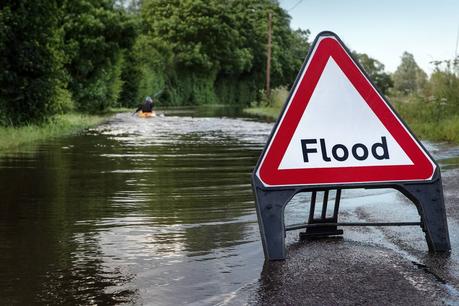
While most people are aware of the impact that climate change is having on the planet, perhaps not enough of us realise just how much it's affecting the UK.
More than a quarter (27%) of Brits think the risks posed by a changing climate are 'probably being over-hyped', despite experts suggesting the contrary. And though we may not experience vicious hurricanes or dangerous typhoons, examples of climate change are happening around us on this tiny island right now.
To give you an idea of how life will be for Brits over the coming years, we've listed the top 9 ways climate change is impacting the UK.
What's on this page?
2. The cold months are becoming less predictable
As the climate warms, snowy winters could become a thing of the past. In fact, BBC Panorama suggests that by the 2040s, most of southern England could no longer see sub-zero days - and by the 2060s, only high ground and northern Scotland are still likely to experience these icy temperatures.
The Met Office has, however, reassured people that if the world reduces carbon emissions significantly, these changes will be less dramatic.
On the flip side to this prediction, global warming could actually lead to global cooling, as counterintuitive as it may sound. The polar vortex is a circulation of winds located high up in the stratosphere, roughly 30 miles above the Earth. It is present in winter, and can sometimes break down entirely in an event called a 'Sudden Stratospheric Warming'.
Although this is a natural phenomenon, some experts claim that climate change could make it more frequent over time.
5. Severe weather warnings will be a regular occurrence
Over the next few years, Brits need to brace themselves for more heatwaves, floods, and droughts - which will also be much more intense than we're used to.
By 2100, heatwaves in the UK are predicted to last up to 50 days, with temperatures exceeding 40°C on a regular basis. Flash flooding will also increase with time - some experts estimate they could even be five times more frequent by the end of this century.
While some climate change deniers suggest this is simply nature taking its course, various experts speculate that if we don't turn this around, the UK could walk into hurricane territory. Meteorologist and climate expert Dr Eddy Graham suggests the frequency and impact of hurricanes on UK shores is likely to increase in the years to come, as a direct result of climate change.
7. ...along with all types of wildlife
When we talk about extinction, many peoples' minds jump to African Rhinos, Asian Elephants, or American Grizzlies - but UK wildlife is also struggling. In fact, populations of the UK's most important wildlife have plummeted by an average of 60% since 1970.
Whether it's grasslands being burnt to a crisp, beautiful wetlands drying up, or oceanic ecosystems becoming too acidic, habitats around the UK are crumbling before our very eyes. But why?
The main reason comes down to climate change disrupting the seasons - the warmer winters and gruelling summers, the seasons starting at different times, the increasingly destructive storms. Many pollinators are also losing their habitats due to intensive farming and land-use change - we've already lost 97% of our wildflower meadows in the UK, which bees rely on heavily.
Some species will not be able to adapt to these changes in their environment. A few of the key animals disappearing from the UK include:
- Sumburgh Head Puffin: In a little under 20 years, the puffin population has plummeted from 33,000 to just 570, thanks to food scarcity caused by climate change
- White-Beaked Dolphins: With an estimated 80% of the European population found in the UK, the warming seas are pushing these dolphins out of their normal territory
- Atlantic Salmon: Warming oceanic waters are having a negative impact on Atlantic Salmon - leading to a lower reproduction rate
9. Our lifestyles will need to adapt
Whilst trying to reverse the damage we've already done to the planet, we're going to have to adapt to these new climate patterns.
Water and food shortages are predicted to be on the horizon, with the cost of living - including things such as food, fuel, and insurance - also estimated to continue increasing. Plus, homes and businesses will continue to be at risk of damage from floods and gales.
In order to overcome these challenges, we need to find ways to adapt to them: flood-proof your home, create a water storage system in your garden, start growing food in a greenhouse.
Beth Howell Writer
